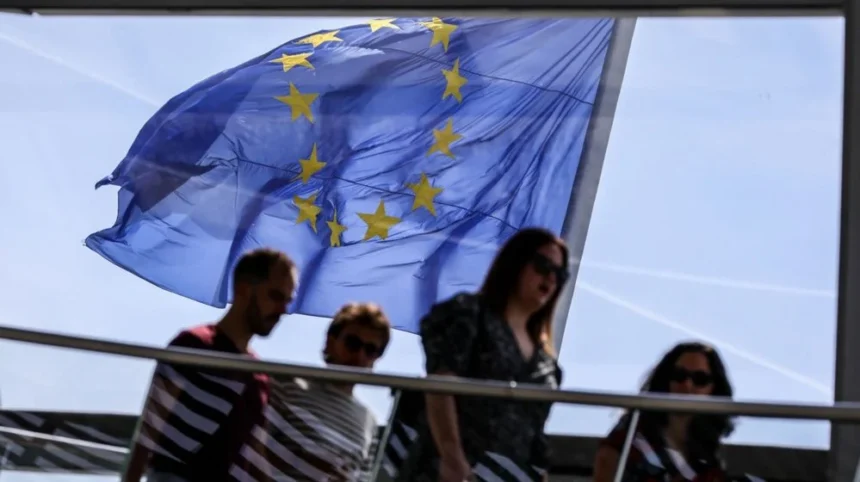Among all Western Balkan countries, Montenegro shows the highest trust in the European Union (EU), according to the Eurobarometer survey for spring 2025.
This survey measures the level of trust in the EU among its citizens since 2007. Among Western Balkan countries included in the survey, trust in the EU is highest after Montenegro in Albania, and lowest in Serbia, reports RTCG.
The surveys were conducted in each country in March and April 2025. Specifically, in Montenegro from March 26 to April 14, with a sample of 520 respondents.
As many as 88 percent of respondents in Montenegro express full optimism regarding the future of the EU.
Also, the vast majority of Montenegrin citizens believe that their country’s EU membership would be a good thing, and that the country would benefit from it. 84 percent of respondents feel closely connected to the EU. Additionally, 95 percent of those surveyed believe that people across Europe have a lot in common.
Regarding perception of the EU, 80 percent of Montenegrin citizens have a completely positive view of the EU.
It is also important to note that 62 percent of EU citizens are also optimistic about the future of the EU.
Regarding the Western Balkans, 83 percent of Montenegrin citizens tend to trust the EU, while 17 percent tend not to trust it.
Citizens of Albania and Kosovo also have high levels of trust in the EU – 80 percent and 79 percent, respectively.
Trust in the EU is lower in North Macedonia and Bosnia and Herzegovina, but still above 50 percent. In North Macedonia, 54 percent of citizens say they tend to trust the EU, while 42 percent tend not to trust it.
In Bosnia and Herzegovina, 58 percent of citizens trust the EU, and 37 percent do not.
In Serbia, on the other hand, only a minority of people trust the EU – 37 percent, while 57 percent say they tend not to trust it.
Regarding EU membership, the situation in the region is similar. More than 80 percent of citizens in Montenegro and Albania believe it would be a good thing.
In North Macedonia and Bosnia and Herzegovina, that number is between 50 and 60 percent, while in Serbia only 34 percent say membership would be a good thing, and 32 percent believe membership would be a bad thing.
EU respondents were asked whether they would support “EU enlargement to include other countries in the coming years.” Across the EU, 54 percent of citizens support this policy, while 39 percent oppose it.
EU enlargement has majority support in most member states, but the majority of citizens in Germany and Austria oppose it. In both countries, 42 percent of citizens are for enlargement, while 53 percent are against it.
In France, 41 percent of citizens are for enlargement, and 49 percent are against it, although the number of opponents has decreased since the previous Eurobarometer.







